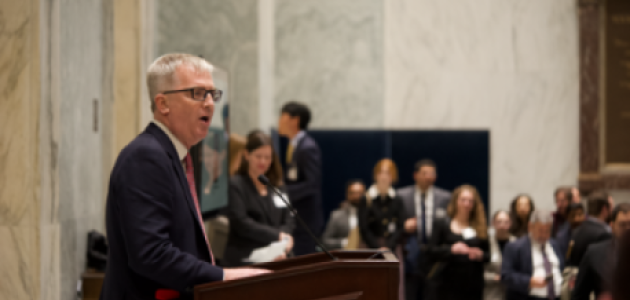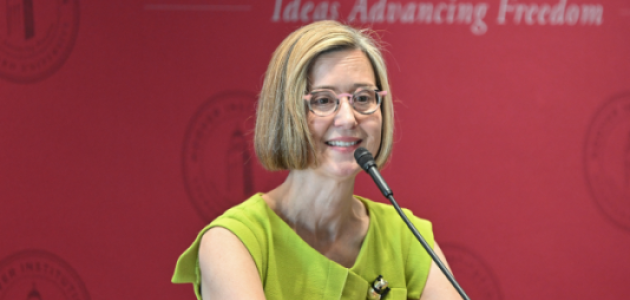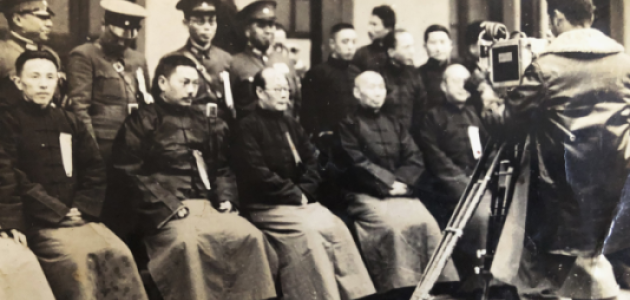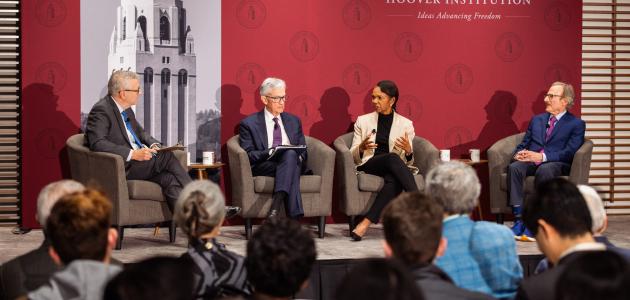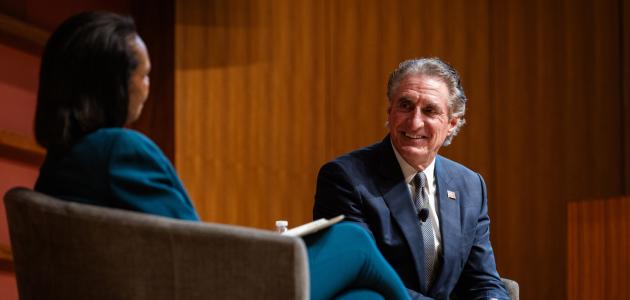Political succession in Russia was discussed at the 32nd Annual Stanford-Berkeley Conference on Russia, East European and Eurasian Studies held at the Hoover Institution, Stanford University, on Friday, March 7. The conference focused on the outcome of the recent presidential election in Russia, when Dmitry Medvedev was elected to succeed Vladimir Putin.
The Stanford-Berkeley conference has alternated between the two campuses since its inception in 1976. The event, organized by Stanford’s Center for Russian, East European and Eurasian Studies (CREEES) and the University of California – Berkeley’s Institute of Slavic, East European and Eurasian Studies, brings together scholars from both universities to promote closer ties and cooperation.
The conference opened with introductory remarks by Hoover senior fellow John B. Dunlop, interim director of CREEES.
“Political Succession of the Medieval, Tsarist and Soviet Periods,” the first panel, was chaired by Gabriella Safran, associate professor of Slavic languages and literature at Stanford University and director (on leave) of CREEES. Panelists included Monica White, humanities fellow in Slavic languages and literature, Stanford University; Harsha Ram, associate professor, Slavic languages and literatures and comparative literature, University of California, Berkeley; Robert Crews, assistant professor, history, Stanford University; and Amir Weiner, associate professor, history, Stanford University.
The second panel, “The Putin-to-X Succession – Part I,” was chaired by Kenneth Jowitt, professor, political science, UC Berkeley, and the Pres and Maurine Hotchkiss Senior Fellow, Hoover Institution. Panelists included Pavel Podvig, Center for International Security and Cooperation (CISAC) research associate, Stanford University; M. Steven Fish, professor, political science, UC Berkeley; and Kathryn Stoner-Weiss, associate director of research, Center on Democracy, Development, and the Rule of Law, Stanford University.
The last panel, “The Putin-to-X Succession – Part II,” was chaired by Michael Urban, professor, Department of Politics, University of California, Santa Cruz. Panelists included Michael McFaul, director, Center on Democracy, Development, and the Rule of Law, Stanford University, and the Peter and Helen Bing Senior Fellow, Hoover Institution; Gail Lapidus, senior fellow emerita, Freeman Spogli Institute, Stanford University; and Edward W. Walker, executive director, Berkeley Program in Soviet and Post-Soviet Studies, the Institute of Slavic, East European, and Eurasian Studies (ISEEES).
Yuri Slezkine, professor of history and director, ISEEES, UC Berkeley, made closing remarks. Following the conference was a screening of “Putin’s Plan,” a PBS documentary by David Ritsher.







